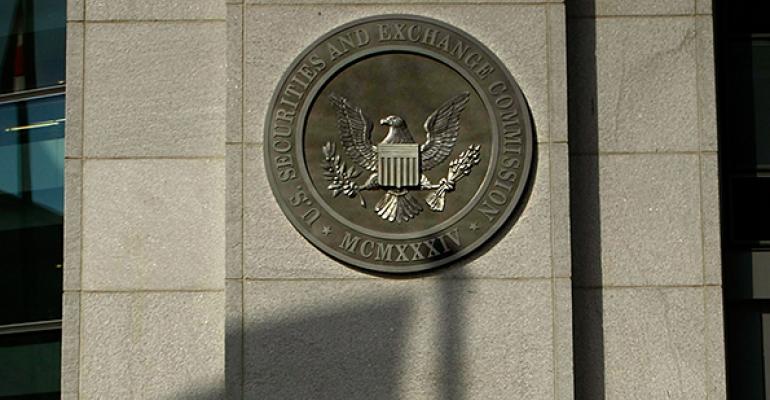By Pete Schroeder
WASHINGTON, Nov 30 (Reuters) - The U.S. Securities and Exchange Commission said Thursday it had ratified the prior appointment of its administrative law judges.
The SEC said in a statement the ratification of five in-house judges would resolve concerns about administrative proceedings handled by those officials, after their status as SEC employees was challenged in court.
The SEC also said it was directing those judges to review their prior actions in all open administrative cases.
The move comes one day after the Justice Department reversed its prior defense of the in-house judges, and marks a reversal of prior SEC policy.
In a brief filed with the U.S. Supreme Court Wednesday, the Solicitor General said it no longer viewed the judges as agency employees, but rather as officers who were subject to the same constitutional restrictions as presidential appointees.
The Trump administration has asked the Supreme Court to render a ruling on the matter.
The SEC's shift brings it in line with the Justice Department's argument, and effectively ensures the existing judges can remain in their posts free of constitutional concerns pending judicial review.
The Supreme Court is expected to decide in the coming weeks whether to take up a case centered on these judges. There are two conflicting rulings in federal circuit courts over whether those judges are constitutional.
For now, the SEC is directing those judges to review all open cases, as well as cases where an initial decision had been rendered but where the administrative process was being worked through.
The SEC has relied increasingly on its own judges to oversee cases, but critics call the fast-tracked in-house court unfair to defendants.
The legal issue facing the SEC is whether administrative law judges are merely employees or “inferior officers” who wield significant decision-making authority covered by the Appointments Clause of the Constitution.
The agency argues that administrative law judges are only employees because their decisions are not final and still subject to SEC review. But critics say they are inferior officers because they have the power to impose fines and bar people from the industry.
Inferior officers under the Constitution must be appointed by the president, the head of a federal agency or by a court. (Reporting by Pete Schroeder and Sarah N. Lynch Editing by Bernadette Baum)






